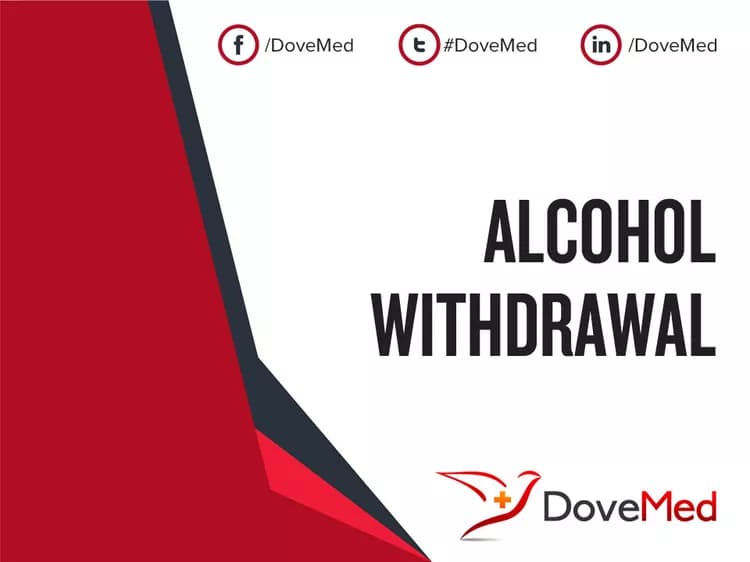What are the other Names for this Condition? (Also known as/Synonyms)
- Alcohol Detoxification
What is Alcohol Withdrawal? (Definition/Background Information)
- Alcohol Withdrawal refers to the widespread symptoms that occur when individuals who are heavy drinkers cease the consumption of alcohol. The effects of Alcohol Withdrawal can range from mild to severely life-threatening symptoms. However, it does not affect all individuals the same
- Withdrawals are a group of symptoms that only arise when alcohol consumption is stopped. It may be experienced just 12 hours after the last drink is consumed. The symptoms are most intense after three days and may last up to a week
- Adult males are more likely to experience Alcohol Withdrawal, as it typically results from long-term consumption. Those above 65 years generally experience severe withdrawal symptoms
- The common signs and symptoms associated with Alcohol Withdrawal are irritability, insomnia, tremors, hallucinations, nausea, vomiting, and rapid heart rate
- Severely affected individuals may have to be managed in the hospital. The prognosis associated with Alcohol Withdrawal is dependent on how severely damaged the body is due to long-term and chronic alcohol consumption
- Although death is a possibility, generally individuals who make it through the withdrawal period are able to make a complete recovery
Who gets Alcohol Withdrawal? (Age and Sex Distribution)
- Alcohol Withdrawal is observed in those who reduce or discontinue the use of alcohol
- Alcoholism is also more prevalent in males
- Alcohol is consumed worldwide, though people in certain regions are observed to consume more alcohol than others
What are the Risk Factors for Alcohol Withdrawal? (Predisposing Factors)
The risk factor for Alcohol Withdrawal includes:
- Discontinuation or reduction in the usage of alcohol
It is important to note that having a risk factor does not mean that one will get the condition. A risk factor increases ones chances of getting a condition compared to an individual without the risk factors. Some risk factors are more important than others.
Also, not having a risk factor does not mean that an individual will not get the condition. It is always important to discuss the effect of risk factors with your health care provider.
What are the Causes of Alcohol Withdrawal? (Etiology)
Alcohol Withdrawal is caused by cessation of alcohol after a chronic habit of daily use.
- Daily, heavy consumption of alcohol disrupts the functionality of the brain and its chemicals (neurotransmitters). When consumption is acutely stopped, the chemicals once suppressed by alcohol are now functional
- This new functionality leads to an over-activity of the brain, leading to the effects opposite of alcohol consumption
What are the Signs and Symptoms of Alcohol Withdrawal?
Signs and symptoms of Alcohol Withdrawal could include:
- Irritability, anxiety, depression, extreme mood swings
- Dilated pupils
- Vomiting
- Insomnia
- Rapid heart rate, convulsions
- Hallucinations, nightmares
- Shaky hands
- Loss of appetite
- Headaches
How is Alcohol Withdrawal Diagnosed?
Alcohol Withdrawal is diagnosed primarily through physical examination. A physician will check for dehydration, abnormal heart rhythm, abnormal eye movements, and also the size of the pupil. Other diagnostic tests may include:
- Blood alcohol level
- Toxicology screening for other drugs of abuse
- Urine tests
- Serum electrolytes such as magnesium and potassium levels
Many clinical conditions may have similar signs and symptoms. Your healthcare provider may perform additional tests to rule out other clinical conditions to arrive at a definitive diagnosis.
What are the possible Complications of Alcohol Withdrawal?
Alcohol Withdrawals may be life-threatening if not treated promptly. Complications associated with the condition include:
- Seizures
- Coma
- Delirium - an acute state of confusion
How is Alcohol Withdrawal Treated?
The treatment of Alcohol Withdrawal may include:
- Medications to manage symptoms; usually benzodiazepines are given to sedate the patient until withdrawal ceases
- Intravenous fluid administration to prevent dehydration
- The patient’s blood pressure, temperature, and heart rate may have to be monitored in a hospital setting, in cases of severe withdrawal
- Counselling of the patient and their family regarding the use of alcohol (into the future)
- Group therapy, in which individuals get to talk about their recovery with similar others who are trying to quit
- Motivational enhancement therapy: It helps create motivation to quit through motivational interviews
How can Alcohol Withdrawal be Prevented?
- Abstaining from heavy, daily, and long-term alcohol use can prevent alcohol abuse and alcohol dependence
- If abuse is acknowledged, early counseling and treatment can prevent the adverse health effects of alcohol
What is the Prognosis of Alcohol Withdrawal? (Outcomes/Resolutions)
- The prognosis associated with Alcohol Withdrawal is dependent on how severely damaged the body is due to alcohol consumption
- Individuals who are able to cope up with the withdrawal symptoms are typically able to make a full recovery
- Lifelong counseling is highly encouraged in order to refrain from the use of alcohol
Additional and Relevant Useful Information for Alcohol Withdrawal:
- According to World Health Organization (WHO), around 3.3 million people die annually due to the ill-effects of alcohol (2014 report). 13% of the deaths are young teens and adults in the 15-29 years age group
- Per WHO, alcohol is one of the five leading risk factor for disease and death globally
- The National Institute on Alcohol Abuse and Alcoholism estimates 14 million Americans (1 in of every 13 adults) either abuse alcohol or are alcoholics
Related Articles
Test Your Knowledge
Asked by users
Related Centers
Related Specialties
Related Physicians
Related Procedures
Related Resources
Join DoveHubs
and connect with fellow professionals


0 Comments
Please log in to post a comment.